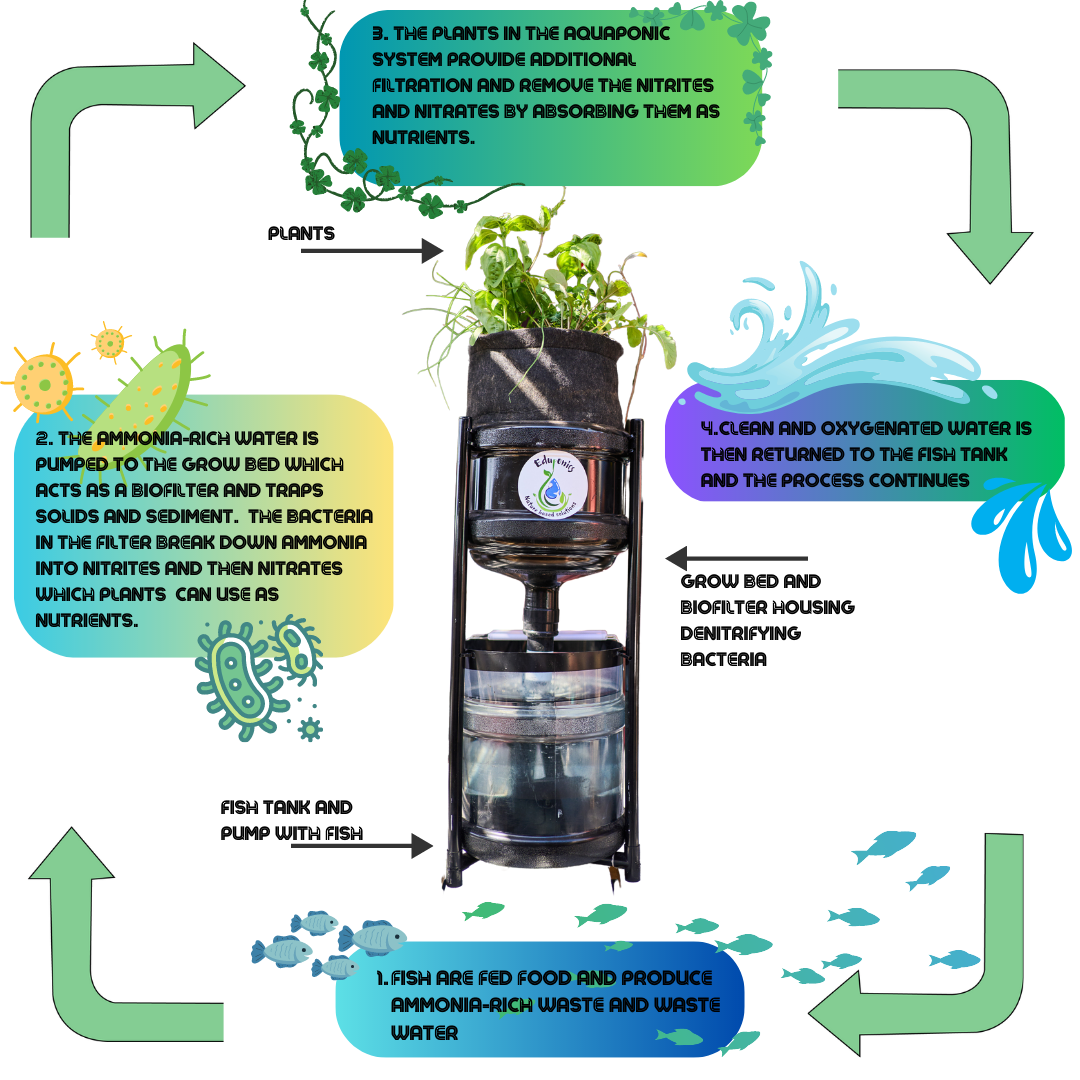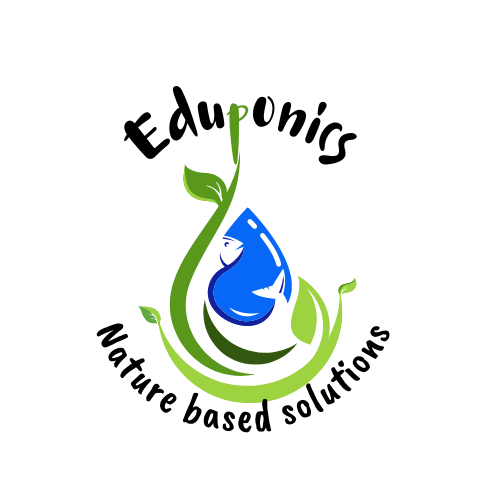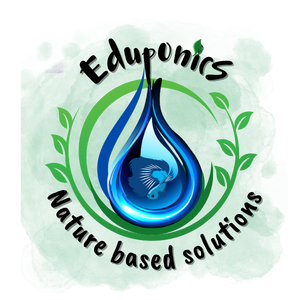Discover Aquaponics and how Eduponics' Unique Approach to Aquaponics is helping create a Sustainable Agriculture for a Greener Future
Discover Aquaponics
Welcome to the world of aquaponics, where fish and plants work together in harmony to create a sustainable ecosystem. At Eduponics, we're passionate about revolutionizing farming through innovative aquaponics and hydroponics systems. Join us on this journey to learn how you can grow fresh produce while conserving water and promoting environmental sustainability.
So What Is Aquaponics?
Aquaponics is a sustainable farming method that combines aquaculture (raising fish) with hydroponics (growing plants in water). This symbiotic relationship allows for a closed-loop system where fish waste provides nutrients for the plants, and the plants filter the water for the fish. It's a fascinating and eco-friendly way to grow food while conserving resources.
How Aquaponics Systems Work
Aquaponics is a sustainable farming method that combines aquaculture (raising fish) and hydroponics (growing plants without soil) in a symbiotic environment. In this system, fish waste provides nutrients for the plants, and the plants filter the water for the fish, creating a closed-loop ecosystem.
Fish waste provides nutrients for plant growth
Plants filter and clean the water for the fish
Reduces water usage compared to traditional farming methods
Promotes sustainable agriculture and community empowerment

Eduponics Go Green's Approach to Aquaponics
At Eduponics Go Green, we've embraced aquaponics as a cornerstone of our mission to promote sustainable development and environmental education. Our approach to aquaponics is characterized by the following principles:
- Community-focused solutions: We believe that aquaponics has the potential to address many of the challenges faced by local communities, such as food security, economic empowerment, and environmental preservation. Our aquaponics initiatives are designed to foster community engagement and collaboration.
- Hands-on education: We're passionate about providing educators and students with hands-on learning experiences that demonstrate the real-world applications of aquaponics. Our workshops and school-based programs immerse participants in the world of sustainable agriculture, inspiring curiosity and a deeper understanding of the environment.
- Innovation and adaptability: We continually strive to refine and expand our aquaponics systems, incorporating cutting-edge technology and best practices to ensure maximum efficiency and sustainability. Our team is dedicated to exploring new ways to make aquaponics more accessible and impactful for communities throughout South Africa.
- Environmental stewardship: At the core of our approach to aquaponics is a commitment to promoting environmental awareness and responsible practices. We believe that by fostering a culture of sustainability, we can inspire future generations to become agents of change in the fight against climate change and environmental degradation.
Ready to dive into the world of aquaponics and discover the transformative power of sustainable agriculture? Join the Eduponics Go Green community by participating in our workshops, supporting our fundraising campaigns, or partnering with us in our mission to bring sustainable development and environmental education to schools and communities throughout South Africa. Together, we can cultivate a greener, brighter future for all.

